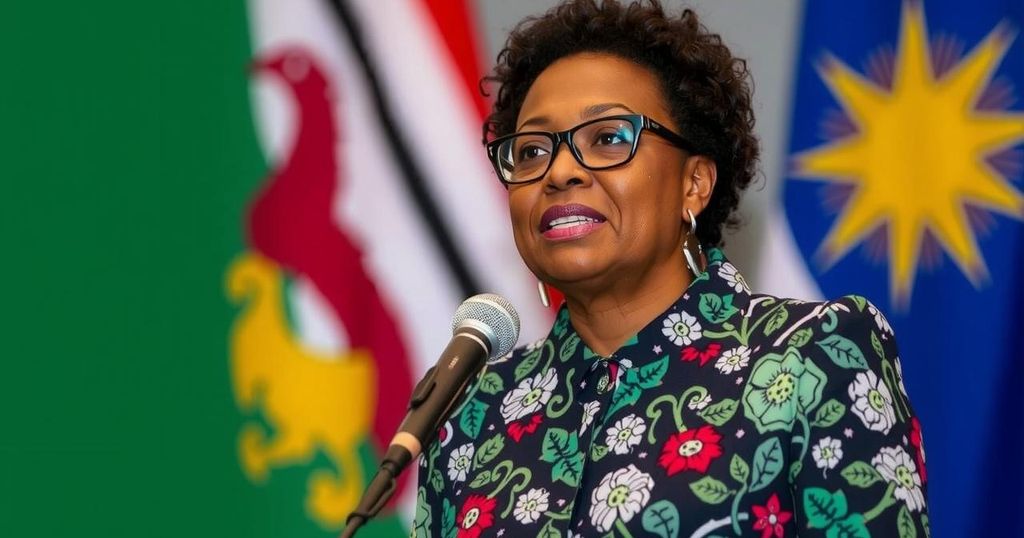Namibia’s Vice President Netumbo Nandi-Ndaitwah leads in early election results amidst allegations of electoral misconduct and opposition complaints regarding illegal voting extensions. The SWAPO party faces scrutiny over economic dissatisfaction and corruption, with opposition parties planning to challenge the election results in court.
In the wake of a presidential election in Namibia, early results indicate that the incumbent Vice President, Netumbo Nandi-Ndaitwah of the ruling South West Africa People’s Organization (SWAPO), is leading. The election, which took place on November 27, 2024, experienced significant difficulties including a shortage of ballot papers, prompting election authorities to extend voting for three additional days. Despite these challenges, Nandi-Ndaitwah, a candidate who may become the first female president of Namibia, garnered approximately 56% of the votes counted thus far. The opposition, led by Panduleni Itula of the Independent Patriots for Change, has expressed dissatisfaction with the process, citing illegality in the extended voting period and indicating plans to legally contest the election results, which they argue undermine Namibia’s democratic principles. The final tally of votes and official certification of results is expected shortly, against a backdrop of growing dissent towards the SWAPO government due to economic hardships and corruption scandals.
The political landscape of Namibia, governed by the SWAPO party since its independence from apartheid South Africa in 1990, is currently facing scrutiny as the country navigates a pivotal election. As economic challenges, particularly high unemployment rates and government corruption, continue to plague the nation, the general public has expressed rising frustration. Political opposition parties, including the Independent Patriots for Change, are reacting vehemently against perceived electoral mismanagement. Namibia’s democratic reputation is at stake as opposition leaders appeal for accountability and transparency in the electoral process.
In conclusion, the ongoing presidential election in Namibia, characterized by technical issues and opposition complaints, is drawing attention to the broader implications of electoral integrity in the country’s democratic framework. With Vice President Netumbo Nandi-Ndaitwah positioned to potentially make history as the first female leader, the legitimacy of the electoral process remains contentious. As the results unfold, the outcome may reverberate throughout Southern Africa, reflecting discontent with ruling parties across the region.
Original Source: apnews.com







